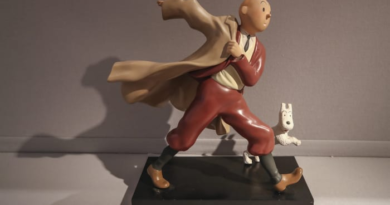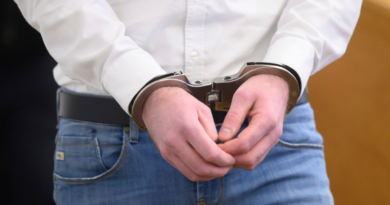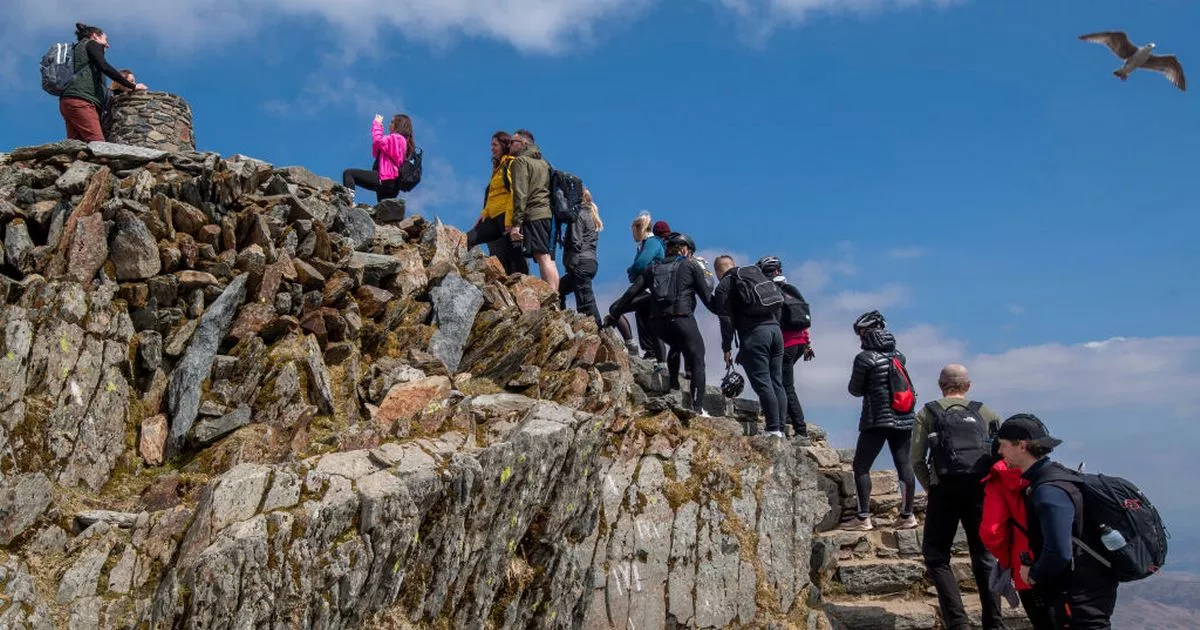Weird, unusual things that have washed ashore on Brevard beaches – Florida Today
Sometimes beachgoers find something more than seashells at the beach.
And sometimes it makes national news.
Take, for instance, that time thousands of coffee cans and packages of Cafe Bustelo washed ashore in Indialantic. Officials say it was most likely from a barge container that had fallen overboard.
Hmm:Large gas container washes ashore near Indian Harbour Beach
Uh-oh:Cocaine washes up on Melbourne Beach as Hurricane Dorian stirs surf
Sometimes Mother Nature plays a role — especially during hurricane season.
In 2017, after Hurricane Irma lashed Brevard County, a sailboat called Cuki beached itself in Melbourne Beach. No humans were on board, but there was a partially clothed (bald) mannequin.
Most recently, a brick of cocaine washed up on Melbourne Beach Tuesday, Sept. 3, during Hurricane Dorian. Waves stirred up by Dorian at Paradise Beach Park revealed what appeared to be a wrapped package that washed up. Melbourne police reported it was a kilo of cocaine. (Read more about it below.)
Here’s a look at some other weird or unique things that have washed ashore on Brevard beaches.
• In November 2017, Brevard County sheriff’s deputies retrieved a large block of cocaine after it washed ashore just south of Melbourne Beach. Some media reports estimated the powdered narcotic to be about 50 pounds.
It was not known what street value the cocaine might have had or whether it was rendered worthless and waterlogged by its journey over the sea. The cocaine was found on the beach in the 3000 block of State Road A1A by an unidentified beachcomber, not far from where a 45-foot sailboat from the Keys — the Cuki — ran aground following Hurricane Irma’s passage.
Such a mystery:‘Ghost boat’ named Cuki demolished, removed from beach
Typically, authorities say such drugs either fall off a boat or are tossed overboard. The block also may have traveled a long distance, possibly battered by rough waves.
• In October 1996, seven bales of marijuana washed ashore in Satellite Beach, Cocoa Beach and neighboring Indian River County. The 75-pound package was found south of First Street South in Cocoa Beach.
• In October 1996, Tony Perritono of Fulton, N.Y., found a large bundle with 30 kilos of cocaine — estimated to be worth about $720,000 — on the beach between Sebastian Inlet and County Road 510, Indian River County sheriff’s investigators said. The bundle had barnacles growing on it, meaning it had been in the water for at least 30 days.
The high-grade cocaine had an estimated value of $24,000 a kilo. The cocaine was wrapped in smaller packages inside the large bundle.
• In November 2005, Noreen Lukow told FLORIDA TODAY environment reporter Jim Waymer she found 89 items during 16 two-hourlong beach walks. At the time, Lukow frequently “beach combed” behind her home south of Melbourne Beach, reportedly finding five needles; six syringes; asthma medication; plastic inhalers; partially spent tubes of ointments for psoriasis; eye-drop bottles, some with foreign lettering; and a tiny canister of clear unknown liquid.
• In December 2015, bottles of cooking oil, pet food containers, Avon body spray and facial cleanser and cans of Lysol disinfectant spray washed ashore in Cocoa Beach, about 150 to 200 pieces in all.
Officials said the likely source of the wayward groceries were from cargo containers that fell overboard from a barge transiting offshore between Cape Canaveral and Palm Beach.
• Also in December 2015, thousands of packages of Cafe Bustelo coffee — in sealed cans and vacuum-sealed packs — washed ashore in Indialantic. The yellow packages stretched a mile, dotting the beaches sandwiching either side of the Doubletree Hotel.
Brevard County sheriff’s deputies and Indialantic police were called to the area near the hotel after the initial reports of the cans turning up in the surf were made around sunrise. Two investigators with the U.S. Coast Guard also were walking the beach, assessing the scene. “We’re checking to make sure it’s nothing else but coffee,” Elvin Rodriguez, a marine science technician with the Coast Guard, told FLORIDA TODAY in 2015. “This is very unusual,” he said, adding that likely, the cargo ship owner could be responsible for the coffee spill.
Coffee spill: Thousands of Cafe Bustelo packs wash ashore
• In August 2016, Louie Salter, owner of Lou’s Blues bar and grill in Indialantic, plucked a 15-gallon barrel of gasoline from the shoreline. The container was topped with barnacles. “It looks like gasoline,” Salter had told FLORIDA TODAY. “We fished it out of the surf and dragged it up off of the beach and onto the grassy area.”
Brevard County Fire Rescue hazardous materials crews inspected the barrel, which was filled with an amber-colored liquid. The barrel may have fallen off of a ship.
• In November 2015, “tar patties” dotted the beach between Fourth Street South and Ninth Street South in Cocoa Beach.
While it’s often difficult to pinpoint an exact cause, an offshore oil spill or natural upwelling are thought to be the typical causes of tar on the beach. The larger chunks could be a result of the manner in which the oil clumped together after the spill or upwelling.
Ick: Pancake-sized globs of tar wash up in Cocoa Beach
• In September 2017, a red mangrove washed ashore in Cape Canaveral during Hurricane Irma. It survived being buried by a beach renourishment project, numerous storms, wind and the elements.
The tree later became a local landmark known as “the shell tree” with treasures or ornaments dangling from its branches. It’s been decorated with seashells, ribbons, seaweed, wrist bands, flags and and any flotsam beachgoers happen to find.
• In 1998, John Kuechly of Cincinnati cut some rope from a 50-foot sailboat washed ashore on a South Brevard beach. He wanted to free the anchor so he could keep it as a souvenir. Two Miami men had been rescued from the leaky boat.
Help:What to do if sea turtles wash ashore after Hurricane Dorian
• In 1999, a sailboat ran aground in Melbourne Beach. About 30 spectators watched as a two boat and salvage crew from Sebastian pulled the boat back into the ocean at high tide.
• In 2003, a large boat washed ashore near Complex 34 at Cape Canaveral Air Force Station. In March 2004, a huge crane was used to haul the boat over the sand dune onto the back of a large flatbed truck.
The boat had become disabled, according to the Patrick Air Force-based 45th Space Wing. With the vessel’s crew in contact with the U.S. Coast Guard, it floated ashore, beaching itself on the sand. Its hull was damaged, but no injuries were reported.
• In November 2010, a large barge washed ashore just north of Harbor Drive in Cape Canaveral.
• In October 2012, a large barge washed ashore near Avon-by-the-Sea. A barge had broken loose from its tethers off the coast of Cocoa Beach because of bad weather. Crews then teamed up with the U.S. Coast Guard, and the barge was removed from the shoreline.
• Also in October 2012, a makeshift raft washed ashore in Melbourne Beach near Turtle Bay. From markings on the boat, it appears the boat washed ashore Oct. 6, 2012.
• In April 2015, a 20-foot boat that likely originated from Cuba washed ashore in Floridana Beach. That homemade vessel contained medical supplies from a Havana pharmacy, and a piece of debris bore the message “Hecho in Cuba” (Made in Cuba.)
• In November 2015, West Melbourne resident Alex Barabas and a friend stumbled upon the unoccupied yellow-and-blue boat — which contained clothing, shoes, empty IV bags and canned food — on the sand near Aquarina Beach and Country Club, south of Melbourne Beach. Water bottles from a Cuban distributor were scattered nearby.
Red spray-painted lettering along the starboard side indicated that the Coast Guard had encountered the raft at sea.
Days later, a retired physician strolling along the beach in Indialantic found a possible Cuban identification card possibly linked with the mystery raft. Dr. Melanie Rotenberg was picking up trash during her daily beach walk when she spotted a laminated ID card with Spanish text lying amid seaweed just south of the 14th Avenue beach crossover.
The card features a woman’s photo on the front. The back identifies her as a “Prisoner Subject to Security Measure,” and the card appears to have been issued by the Cuban Ministry of the Interior.
Unsolved mystery: What’s with the raft and the Cuban ID card?
• In December 2016, a makeshift watercraft possibly used by refugees was taken apart and removed after washing ashore in Satellite Beach. Authorities had said it is not unusual for such boats to be used by refugees from island nations such as Cuba. On the side of the boat were the words “Dios Esta Con Nosotros” or roughly translated in English, “God is with us.” There also was a Russian-made diesel engine onboard.
The boat appeared to be made of aluminum siding. Inside the watercraft were canned goods with the labels stripped off by water, medicine for diabetics along with syringe needles, sunblock and paddles.
• In September 2017, a 45-foot sailboat named Cuki washed ashore at Spessard Holland South Beach Park in Melbourne Beach days after Hurricane Irma. Cuki’s unusual “passengers,” two mannequins, drew speculation about the vessel’s puzzling saga at sea. A beach jogger reported the sailboat. A Brevard County Sheriff’s deputy determined the vessel was registered to an owner in Key West.
Coast Guard records show Cuki is a 45.4-foot fiberglass-hull sailboat built in 1974. Hailing port: Key West. The boat’s name, Cuki, was painted on the transom in blue paint alongside the port New Rochelle, New York. “OK” is also spray-painted on the hull in a few places, indicating that the Coast Guard may have encountered and marked the sailboat at sea.
In January 2019, Cuki was taken apart and moved to a Cocoa landfill.
• In February 2003, the carcass of a juvenile humpback whale washed ashore on Canova Beach at Eau Gallie Boulevard. The whale flesh was buried at the beach and the bones were taken to Hubbs-SeaWorld Research Institute in Orlando. Experts estimated the animal had been struck by a vessel and broke its back.
• In January 2010, a 15-foot beaked whale washed ashore near Melbourne Beach and died there. The Hubbs-Sea World Research Institute was called to determine what caused the death.
Sangalang is social media strategist at USA TODAY Network-Florida.
Contact Sangalang at 321-242-3630
or jsangalang@floridatoday.com.
Twitter: @byjensangalang
Support local journalism: Subscribe to FLORIDA TODAY at floridatoday.com/subscribe.



